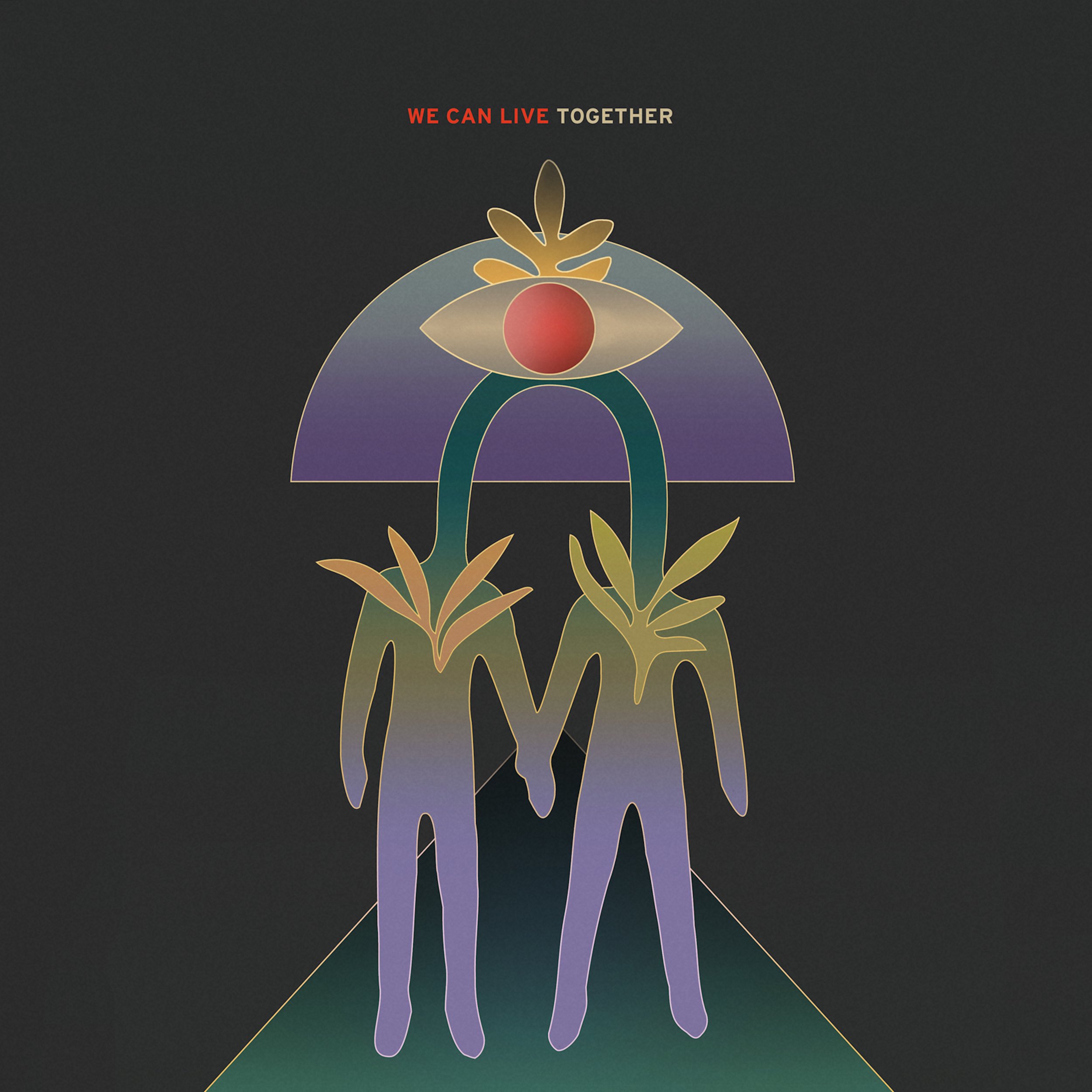Words by Justin Turford
The supposedly contrasting worlds of deep house and Afro-Latin music have plenty of history together. Despite the former’s rhythmic rigidity, producers of Latino descent have been main players in the house scene since its inception. From the early days in the gay clubs where young Black and Latino dancers were the dominant audience to the chart-invading underground talents of Louie Vega and Kenny ‘Dope’ Gonzalez or Junior Vasquez in the 90s, house always had a serious Latino heritage. Now, of course, the DNA of house music is embedded in the global culture, good or bad, its production values and tricks permeate a multitude of genres.
Serge Bandura is neither African-American nor Latino but his new album ‘We Can Live Together’, drips with the knowledge and love of the best of the genre. Ukrainian-Jewish by descent and Boston born, he has become a Californian by choice. A yoga teacher who runs his own retreat (which is also a record store and venue), a DJ who has played alongside Theo Parrish amongst many and a producer who positions his ritualistic practices into the heart of his music. His new album for Wonderwheel Recordings follows last year’s beatless and meditative debut, body movement joining the heart in a sophisticated, soulful electronic pot of diasporic ingredients.
His love of vintage NYC and Cuban salsa, cumbia and Colombian music shines brightly on this release but so do artists such as Moodyman, Osunlade, Joe Claussell and the ocean deep warmth of Pepe Braddock at his best or the originator Larry Heard. Friends with fellow cosmic wanderer Carlos Niño and others in the Cali environmental music scene, one can also feel and hear that nature-loving energy that the West Coast has harboured since the earliest vestiges of hippiedom especially on tracks like the folkloric ambience of ‘Deià Dream’ - all heavy pads and hand percussion, the blurring of the stringed berimbau (or is it?) and arpeggiated synth a lovely meditative touch.
Earthtones (Sergio Bandura) Photo by Jiro Schneider @jiro_sc)
He’s also brought along a few talented friends for the ride. The bumping ‘Limones’ features the massed voices of the award-winning Colombian marimba sensation Semblanzas Del Rio Guapi on lead and backing vocals. A bulging dub-disco bassline, interlocking percussion and tasteful synths provide the bedrock for Semblanzas’ ancestral Pacifico voices that soar and guide the dancer along. Not dissimilar to some of Quantic’s collaborations with fellow Colombian Nidia Góngora, the fusing of Afro-Colombian musical heritage and light touch electronic soul works a treat.
The dreamy broken beat-ish ‘Ọ̀sanyìn’ sees Maikel Alberto Salazar of renowned rumba collective Obbatuké delivering a relaxed prayer to the Orisha Ossain over some simple but effective housey chords and strings. Recorded in Santiago De Cuba where Obbatuké are mainstays at the legendary ‘Casa del Caribe’, the complexities of Cuban rumba are replaced with stripped down electronic percussion and thudding kick drums that never overwhelm the spiritual tone of the song.
The chugging electro-cumbia number ‘La Mujer Serpiente’ features the prize-winning Colombian-Canadian artist Lido Pimienta, her youthful and slightly pensive voice breaking out into a kind of pop chorus, Bandura supplying some twisty analogue keys and washed out synth clouds.
Verito Asprilla
The Colombian connection continues to bear fruit with the Metro Area-channelling ‘Quiero Que Mami’. In collaboration with Bogotá producer and Llorona Records boss Cerrero (who appears elsewhere on the album), this low slung electro-house joint struts along with heatstroke confidence, the rapped vocal from Verito Asprilla may be an homage to their respective mothers but it is also a masterclass in feminine swagger. An album highlight and sure to be in the right DJ ‘crates’ this summer.
The ambient album opener ‘Deià Dream’ ditches its horizontal musicality and returns with a 4/4 Detroit-influenced drum machine pattern, still deeper than deep but with added dancefloor skittishness.
There are two versions of the esoteric groover ‘Selam’, both the original and the dub featuring the soulful vocal talents of Ethiopian artist and fellow Californian, Etsegenet Mekonnen. A twisting acid-y dancehall bass line and dissonant synths power along behind her captivating multi-part melodies and Amharic lyrics, ‘Selam’ may be about peace but it is built for a hot dance.
Selam enezra ahunim (let us sow peace)
The swaying ‘Salta La Cuerda’ sees Andean-Ecuadorian singer-songwriter and folklorist Huaira sweetly singing over a walking speed groove that is reminiscent of the productions of El Búho or fellow Ecuadorian Nicola Cruz (both of whom she has collaborated with) but with 80s style Jan Hammer synths and reverbs giving it a Los Angeles sheen.
The atmospheric pieces ‘Song Of The Wind’ and ‘Waves’ close the album as though it were a closing sequence at a yoga session. Deep synth pads and treated bells gently requesting the mind and body to just be, a fitting and calming finale to a record geared towards ceremony and peace.
‘We Can Live Together’ isn’t particularly groundbreaking in its sound but the calibre of the artists involved, the songwriting and the juicy production reveals a classy album that will certainly attract much deserved attention. 8/10
BUY HERE! https://earthtonesmusic.bandcamp.com/album/we-can-live-together



